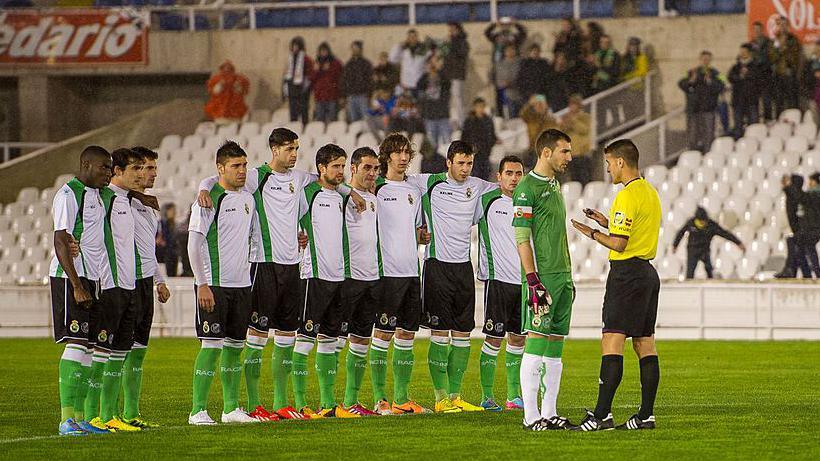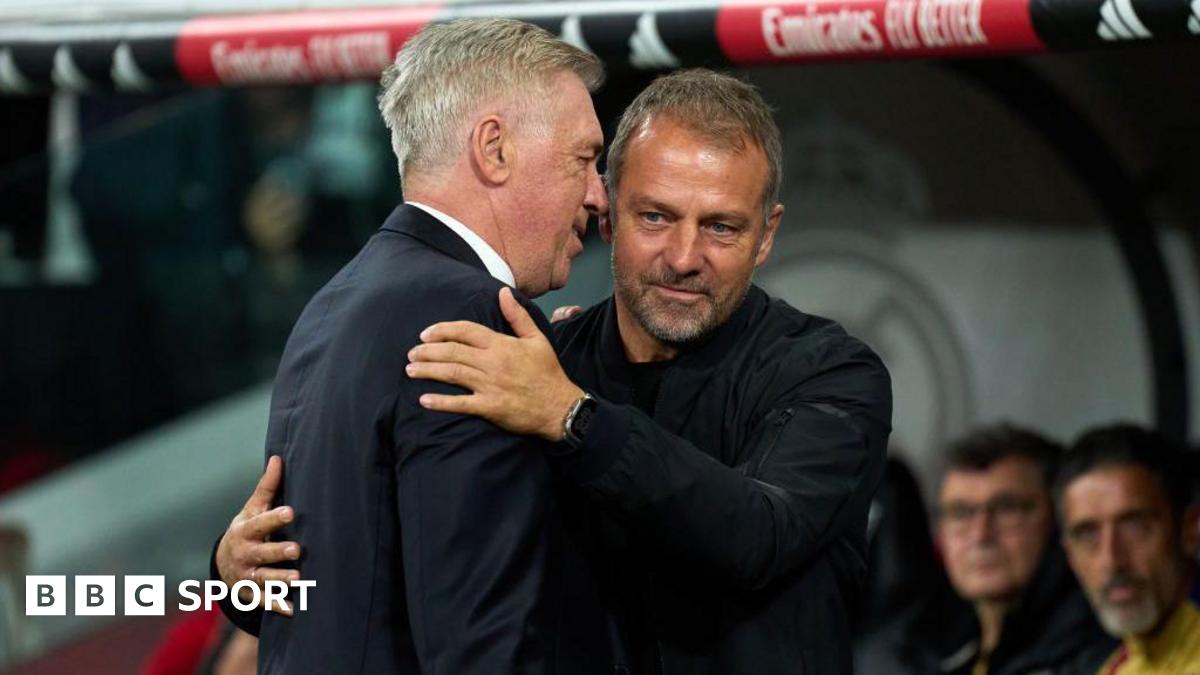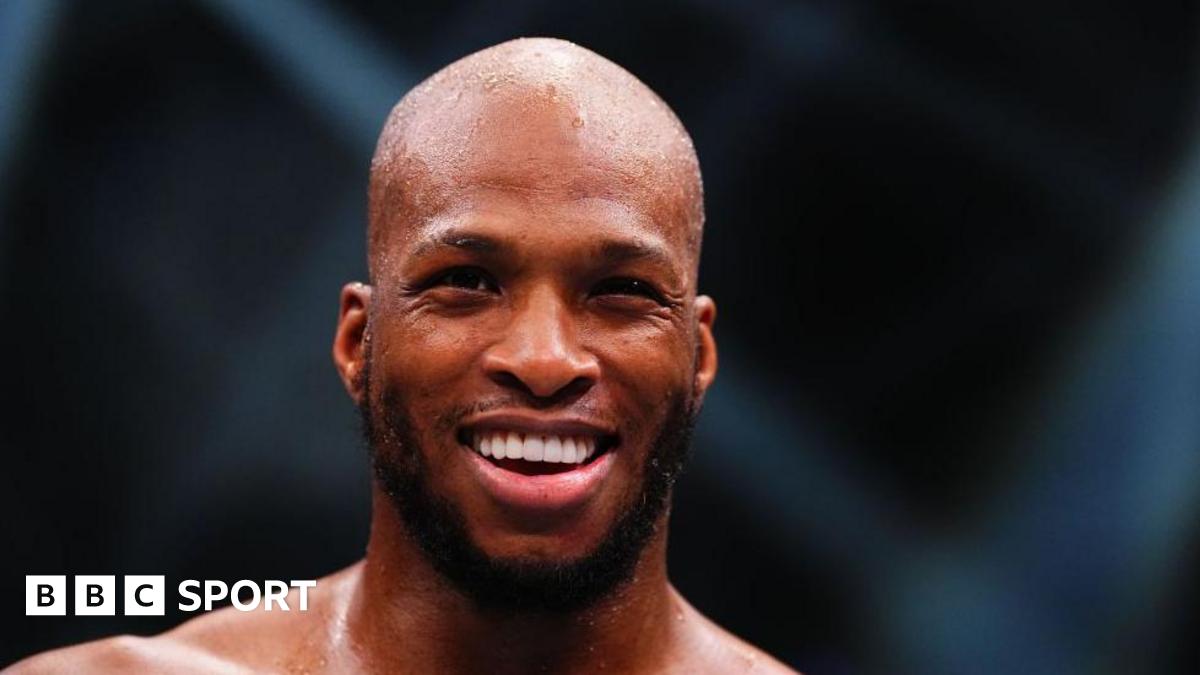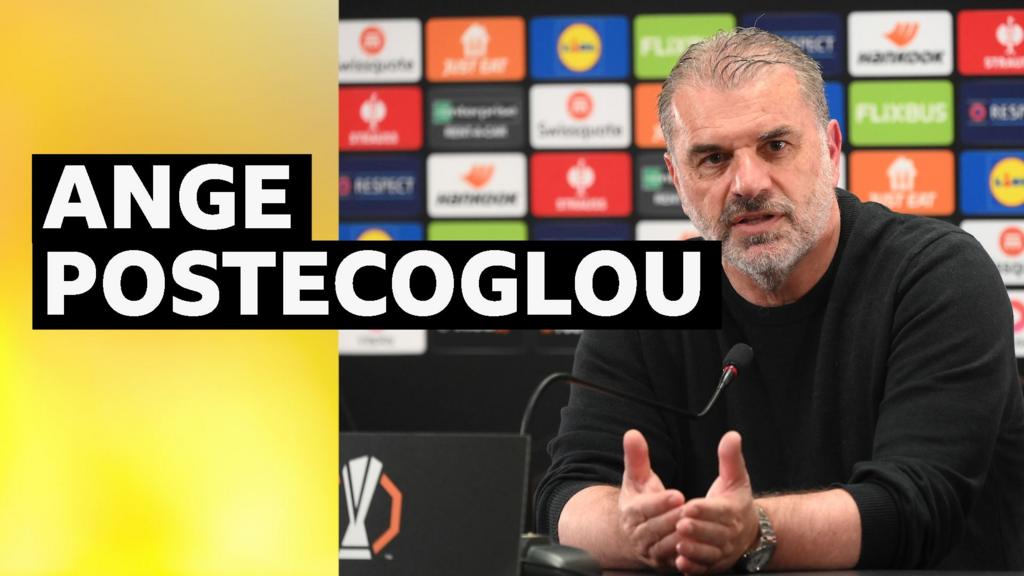ARTICLE AD BOX
 Image source, Getty Images
Image source, Getty Images
Racing Santander were disqualified from the Copa del Rey
Alex Brotherton
BBC Sport journalist
The referee blew his whistle but the game didn't start.
Instead the players of Racing Santander headed to the centre circle and linked arms, taking applause from all sides of their home stadium, El Sardinero.
Real Sociedad, 3-1 up from the first leg of the Copa del Rey quarter-final, played a few token passes before putting the ball out of play.
After years of decline, forfeiting that match on 30 January 2014 could have been the end of Racing. Yet it proved to be a turning point, one that has led them to the brink of La Liga.
'I've rarely seen so many people cry'
There might be a lack of silverware, but the history of Racing Santander is far from insignificant. The club from Cantabria were among La Liga's 10 founding members, and after playing in 44 top-flight seasons they occupy 15th in the all-time table.
In 2008-09 they beat Manchester City and drew with Paris St-Germain in the Uefa Cup. Yet by 2013 the club had fallen into disarray. After 10 successive campaigns in the top flight, back-to-back relegations left the Verdiblancos in the regionalised semi-professional third tier. But that was the least of their problems.
Indian businessman Ahsan Ali Syed bought the club in early 2011, yet within months it was being reported that Racing's financial problems had not gone away. By the summer, they were in bankruptcy protection.
Club president Francisco Pernia and his board later resigned. Pernia's successor, Angel Lavin, promised an instant return to La Liga, vital for the financial health of the club. Instead, the 2012-13 campaign ended with relegation.
Matters came to a head during Racing's improbable run to the following season's Copa del Rey quarter-finals, during which they eliminated top-flight Sevilla and Almeria. After demands for the board to resign were ignored, Racing players followed through with their threat to refuse to play.
Racing were disqualified and barred from the following season's competition, but the image of players standing arm-in-arm on the pitch brought global attention to the club's plight.
"I'll never forget the greatest feeling of pride of being a Racing fan and of those boys wearing our shirt," lifelong fan and season ticket holder Aitor Alexandre tells BBC Sport.
"I have rarely seen so many people cry. It was the day we knew we were indestructible, that we had won the war and that no-one could try to destroy the club again."
Lavin was removed as president the following day. In 2022, he began a prison sentence of two years and nine months for for fraud and embezzlement.
In 2022, Syed was the subject of an extradition request in London on behalf of the Swiss government, which alleged that he had used money acquired fraudulently to fund investments including his acquisition of Racing Santander.
A new way to play
Although Racing's players made a powerful statement in the Real Sociedad game, the club were not out of the woods.
Former player-turned-president Manolo Higuera worked hard to reduce the club's debts, while thousands of supporters purchased shares to keep the club afloat.
After yo-yoing between divisions, Racing returned to the second tier in 2022. Stranded in the relegation zone four months into the campaign, Jose Alberto Lopez Menendez was appointed manager and given a rescue brief.
The Spaniard, looking to repair his reputation after a desperate seven months at Malaga, guided Racing to safety. The following season, his side should have made the play-offs, but a final-day defeat by bottom club Villarreal B cost them a place on goal difference.
Racing are now flying in his second full season in charge, with the backing of Higuera, who returned for a second term as president in 2023 after purchasing a 75% stake in the club with Sebastian Ceria. Racing are nine points clear at the top of La Liga Hypermotion and have lost just once this season. No team has won the league by a margin greater than three points in any of the past five seasons.
"The team's style has taken a giant step forward," says journalist Edu Bermudez Dapena. "It’s gone from having a very defensive style to being a team that wants the ball, that goes up to press and is not afraid of the rival."
The success of Pep Guardiola’s all-conquering Barcelona side helped establish positional play as the dominant footballing ideology among coaches. Players move into certain zones to create numerical and positional advantages, creating gaps in defences through which to play.
Image source, Getty Images
Image caption,Racing Santander were in the relegation zone when Jose Alberto took charge
But the system Racing use, relationism, is now having its moment.
"In relationism, players move closer to the ball carrier - instead of spreading out - to create quick passing combinations and break down opposition defences by confusing them," coach and tactics writer Jamie Hamilton - who coined the name - tells BBC Sport.
"It's not really planned, coaches aren't training certain passing sequences or patterns, although general concepts like 'diagonals' or 'ladders' help to guide player interactions."
The principles central to relationism have long been used in South America, where pass-and-move (toco y me voy) football reflects the flair and self-expression of the people.
Thanks to the radical relationist football played by Fernando Diniz's Fluminense on their way to winning the Copa Libertadores in 2023, its popularity in Europe is growing, from Real Madrid to Malmo.
"We think that [by playing closer together] we can make our players shine due to their characteristics," Jose Alberto tells BBC Sport.
"We want to exploit the characteristics of our players so that they have greater advantages in each game situation."
Fans dream again
Image source, Getty Images
Image caption,Average home attendances at Estadio El Sardinero are at their highest point this century
There's something special about one-club cities. Newcastle, Naples, Marseille; all harbour intensely intimate bonds between people and club. Santander is no different, especially as Racing is the only club in the entire region of Cantabria.
Cantabrians are proud and protective of their identity, but happy to welcome outsiders to their El Sardinero home as long as they buy into 'Racinguismo'.
"It represents the ripple effect of what it means to support this football club," says Andy Wooding, a Racing fan based in Wales who flies out for games.
"It’s the people you make friendships with, the support you give one another when it's required, the camaraderie of sharing the same passion whether you win or lose."
What Jose Alberto and his players are doing is remarkable, but without the fans it’s unlikely Racing would be where they are right now.
At El Sardinero, Racing fans produce one of the loudest matchday experiences in Spain, support fitting of a top-flight club.
"What they make us feel from before kick-off, from the moment we leave the dressing room and head to the tunnel… for us it is impossible to start a match disconnected from the atmosphere they generate," says Jose Alberto.
For a club that has experienced such turmoil, returning to the league they helped establish 95 years ago would mean that little bit more.
"It would be an immense, indescribable joy for the city and the province," adds Jose Alberto. "The fans could experience it as a liberation and it would be a consolidation of the project, that Racing has returned to stay and dream."

 5 months ago
20
5 months ago
20








 English (US) ·
English (US) ·